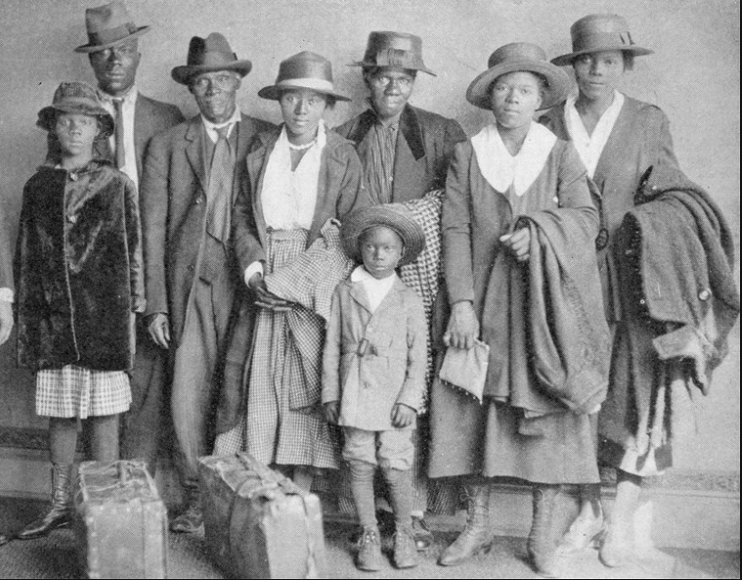“The City of Chicago has decided it does not want moderate-income people like you and me living in Bronzeville.”
One of the first things visitors to Chicago’s South Side notice is a sea of empty lots. When banks, savings and loans, and insurance companies redlined the area and manufacturers left, taking jobs to the suburbs or out of the state or country, the City seized more and more vacant land from overburdened homeowners. By 2004 the City owned almost 2,000 vacant lots in Bronzeville.
In keeping with Bronzeville’s proud history as Chicago’s foremost African-American community where rich, poor, and moderate-income residents lived side-by-side in an earlier era of rigid Chicago segregation, in 2004, with the support of the Lugenia Burns Hope Center, local residents came together to fight for affordable homes and communities on these lots.
Residents believe that moderately-priced homes owned by moderate-income families balance community investment, reduce crime, and increase both community self-worth and African-American families’ net worth.
On November 4, 2004, 18,519 Bronzeville voters (85% of all who voted) came together with a united voice to approve a plan for affordable homeownership funded with their own tax dollars. The Bronzeville Housing Trust Fund was born.
Resistance from the City was immediate. 3rd Ward Alderman Dorothy Tillman was the first to try to block the majority of local residents’ wishes. She wouldn't be the last.
For eight months, Department of Planning officials refused to release a transparent list of city-owned vacant lots in Bronzeville.
The officials then lied about the status of the vacant lots, saying they were available for any resident to purchase, even as aldermen in the area made it clear that all lots were on hold and unavailable to local residents.
The officials refused to provide any of the City’s long-term development plans for the community and even denied that they had such plans, despite evidence to the contrary.
On July 24, 2007, Housing Bronzeville placed 1,894 signs on all city-owned vacant lots. The City deployed its garbage trucks from across the South Side to remove them and threatened Housing Bronzeville with fines of up to $1 million.
On April 22, 2008, all four local aldermen met with 250 local residents and vetoed the creation of the Bronzeville Housing Trust Fund for affordability in the area. They instead supported Mayor Daley’s continuing creation of 18 Tax Increment Financing (TIF) Districts in the area.
When the City sought the 2016 Olympics in 2008 and 2009 with Bronzeville as its main staging area, Mayor Richard M. Daley refused even to meet with Housing Bronzeville, let alone sign a commitment for affordable homes as part of a legacy agreement.
The administration of Rahm Emanuel has not built a single affordable home in Bronzeville in more than seven years, even while pursuing two pilot projects to address residents’ concerns in four other communities deeply concerned about gentrification. Instead the Mayor points with pride to $600,000 homes built on vacant lots in Bronzeville sold by the City to developers for $1 each.
On June 24, 2018, the Emanuel administration announced with great fanfare subsidies of up to $60,000 per home to support affordable homeownership on city-owned vacant lots. It excluded Bronzeville from participation, with City officials stating bluntly to leaders of Housing Bronzeville that their community is ineligible for any such program.
To many Bronzeville residents, these vacant lots represent a new community that is being overlooked and waiting to be born. They seek commitments from the city to make ten of the city-owned vacant lots available to developers for $1 each as a first phase of Bronzeville Affordable Homes, plus subsidies to ensure that the homes can be built at a price level that is affordable to moderate-income families. They believe such a commitment will support the long-term development of a diverse, mixed-income community that will reflect their own proud history and heritage.


